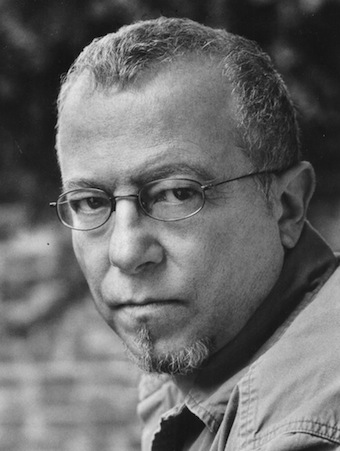On Reza Aslan’s “Zealot”: A Symposium
Reza Aslan's "Zealot": A Symposium
By Andrei Codrescu, Costica Bradatan, Kevin Hart, Phillip MaciakAugust 11, 2013
Zealot: The Life and Times of Jesus of Nazareth by Reza Aslan. Random House. 336 pages.
WITHIN ONE MONTH of its publication, Reza Aslan's Zealot: The Life and Times of Jesus of Nazareth has managed to achieve a record of sorts: to become one of the new books at once most despised (if you follow Fox News, for instance) and most sought after (if you look, say, at Amazon.com's best-sellers list). Unless people are buying the book just to burn it, the obvious question is: what is it about this title that causes such a divergent response? In an attempt to find an answer, Los Angeles Review of Books has invited three writers to discuss Aslan's book: Andrei Codrescu, Kevin Hart and Phillip Maciak. Each reviewer considers the book from a distinct disciplinary and rhetorical angle; while produced independently, these readings complement and enliven each other. We hope that this critical exercise offers the book the serious discussion it deserves.
— Costica Bradatan
ANDREI CODRESCU

Aslan’s Jesus “is not sexy, inspired, or visionary, but does shine with a malevolent light when he speaks of war and bloodshed. Otherwise, he is dour, hidden, engaged in an endless pedantic quarrel with the guardians of the Temple. He doubts himself only when he feels that he's not zealous enough.” [Read More]
KEVIN HART

"When we talk about the 'historical Jesus' we are talking not about the itinerant rabbi who lived 2000 years ago but about the Jesus who comes into view using the techniques of modern historiography.” [Read More]
PHILIP MACIAK

“Aslan does not ask, “What would Jesus do?” Instead, he asks, “What would someone like Jesus do?”. . . we ought not ask what Reza Aslan reveals to us about Jesus, but what Reza Aslan’s Jesus reveals about us. Is there some significance, in the age of Occupy Wall Street and the Arab Spring, to a story about the fall of an unassailable empire and the breaking of the cycle of failed revolutions?” [Read More]
¤
LARB Contributors
Andrei Codrescu is the author of Messiah, a novel, and Whatever Gets You through the Night: A Story of Sheherezade and the Arabian Entertainments. His most recent books are Bibliodeath: My Archives (with Life in Footnotes) and So Recently Rent a World: New and Selected Poems.
Costica Bradatan is a professor of humanities in the Honors College at Texas Tech University in the United States and an honorary research professor of philosophy at University of Queensland in Australia. He is the author and editor of more than a dozen books, including Dying for Ideas: The Dangerous Lives of the Philosophers (Bloomsbury, paperback, 2018) and In Praise of Failure: Four Lessons in Humility (Harvard University Press, 2023). His work has been translated into more than 20 languages, including Dutch, Italian, Turkish, Chinese, Vietnamese, Arabic, and Farsi. Bradatan also writes book reviews, essays, and op-ed pieces for The New York Times, The Washington Post, The Times Literary Supplement, Aeon, The New Statesman, and other similar venues.
Kevin Hart is the Edwin B. Kyle Professor of Christian Studies at the University of Virginia. His books include Barefoot (Notre Dame University Press, 2018) and Poetry and Revelation (Bloomsbury, 2018). A new book, forthcoming from Chicago University Press, is the volume of his Gifford Lectures, Lands of Likeness: For a Poetics of Contemplation.
Phillip Maciak (@pjmaciak) is the TV editor of the Los Angeles Review of Books. His essays have appeared in Slate, The New Republic, and other venues, and he's co-founder of the Dear Television column. He's the author of The Disappearing Christ: Secularism in the Silent Era (Columbia University Press, 2019) and Avidly Reads Screen Time (New York University Press, 2023). He teaches at Washington University in St. Louis.
LARB Staff Recommendations
Did you know LARB is a reader-supported nonprofit?
LARB publishes daily without a paywall as part of our mission to make rigorous, incisive, and engaging writing on every aspect of literature, culture, and the arts freely accessible to the public. Help us continue this work with your tax-deductible donation today!